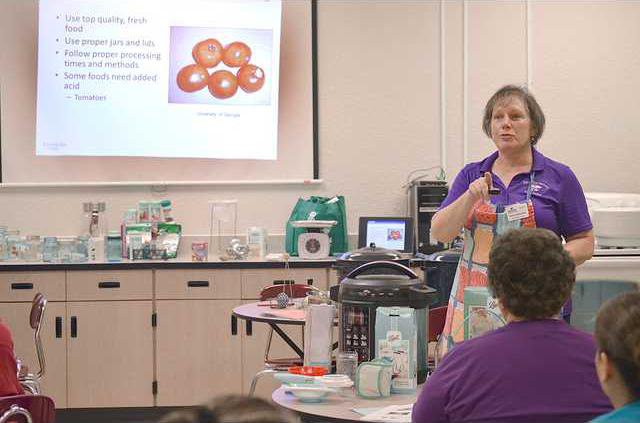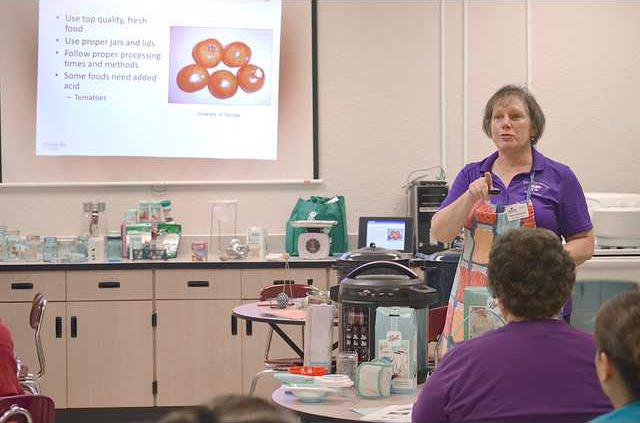As tomatoes begin to ripen and cucumbers are dripping off the vine, it’s time to consider what to do with the harvest. For some, it will mean bringing produce to the office to share with co-workers, or to give to family and friends. For others, preserving summer’s bounty for later in the year is the solution.
Donna Krug, Barton County Extension family consumer science agent, said she has noticed an increase in requests for information about this in the past few gardening seasons.
Krug and Karen Blakeslee, Kansas State University Extension Service Rapid Response Center coordinator, joined forces Friday at Great Bend High School for a food preservation workshop where attendees learned several methods of preserving fruits, vegetables and herbs.
The class included both English and Spanish speakers, instructors and translators, adding an interesting cultural flavor to the experience.
Krug is a regular presenter for the USD 428 Migrant Parent forum that meets during the school year. She surveyed participants and found there was broad interest in learning to can, so she contacted Blakeslee who provides this training statewide.
“We are very fortunate to have her come,” Krug said.
The school district agreed to allow the use of the FCS classroom at the high school because in order to teach the class effectively, several stovetops were necessary.
After classroom instruction in the GBHS family and consumer science classroom, the attendees huddled around sing and stove stations to try their hands at the process. They chopped then preserved garden-fresh carrots and green beans.
They also had the opportunity to dry herbs.
Methods covered included the pressure cooker canning method, required for low-acid vegetables like beans and corn, and the water-bath method for high-acid produce like tomatoes and peppers. The class made salsa, which they canned as well as canned carrots.
Krug also introduced the group to dehydration methods used to preserve herbs from the garden, as well as some low-water fruits and vegetables. Finally, students learned how to make homemade jam with pectin.
Students walked away from the day-long workshop with a selection of preserved produce and the know-how to repeat their efforts at home. Krug is working on follow-up programs for other preservation methods including pickling.
Canning class brings together diverse mix





